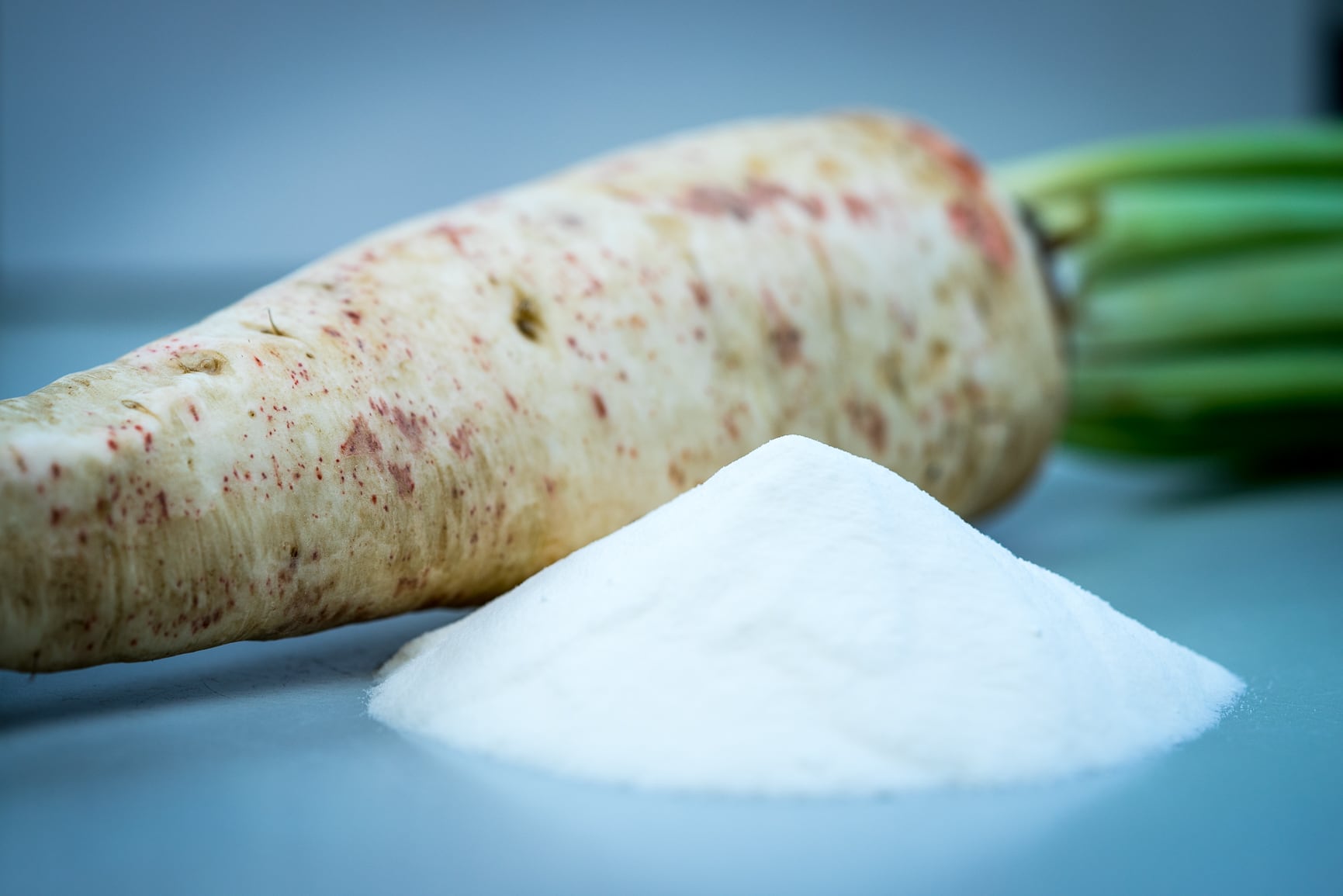Data published in BMC Medicine indicated that prebiotics may exert different effects on healthy people and those who are overweight or obese, highlighting the potential of personalized approaches to prebiotic interventions.
“Our findings contribute to the ongoing debate regarding the efficacy of prebiotics in managing metabolic health,” wrote researchers from Southern Medical University (China), the University of Reading (UK), Fun-Poo Biotech (China) and Quantum Hi-Tech Biological Co., Ltd (China).
“The differential effects of inulin and FOS likely stem from variations in their structural characteristics, fermentation profiles, sourcing and purification processes, potentially mediated by key gut microbes. Inulin and FOS, both classified as prebiotics, differ in their degree of polymerization, which affects their fermentability and the production of short-chain fatty acids (SCFAs). These SCFAs can influence the composition and function of the gut microbiota differently, offering a possible explanation for the conflicting views on the therapeutic potential of prebiotics reported in previous literature.”
Prebiotics
According to the 2017 expert consensus document in Nature Reviews Gastroenterology & Hepatology by the International Scientific Association for Probiotics and Prebiotics (ISAPP), a prebiotic is defined as: “A substrate that is selectively utilized by host microorganisms conferring a health benefit.”
The International Probiotics Association (IPA) formally adopted this definition recently in a move described as “critical for advancing scientific research [and] developing effective and evidence-based products.”
“This decision signifies IPA’s commitment to advancing scientific clarity, regulatory alignment and commercial harmonization across the prebiotic field,” IPA stated in a press release.
Inulin and FOS are among the most established and characterized prebiotics. Both are fructans composed of fructose units, but they significantly in their degree of polymerization (DP) and chain length. Inulin is typically longer with a higher DP, “resulting in lower solubility and slower fermentation in the distal colon,” explained the authors of the new paper. On the other hand, FOS, which has a shorter chain length and a lower DP, is more soluble and is rapidly fermented in the proximal colon.
“These differences affect their impact on short-chain fatty acid (SCFA) production, gut microbiota modulation and subsequently results in different effects on host metabolism,” they wrote.
Study details
The new study included 131 adults, 97 of whom were of a healthy weight and 34 were overweight and/or obese. The participants were randomly assigned to three groups: One group received placebo (26 normal weight and 18 overweight/obese), another group received 15 g per day of inulin (30 normal weight and 14 overweight/obese), and the third group received 15 g per day of FOS (31 normal weight and 12 overweight/obese).
Results of the four-week study indicated that the placebo group exhibited no changes in glycemic metabolism or gut microbiota. In overweight/obese individuals but not healthy weight individuals, inulin was associated with significant reductions in glucose levels during an oral glucose tolerance test (OGTT), decreased homocysteine (HCY) levels and higher fasting insulin levels.
“Inulin robustly promotes bacterial function involved in folate biosynthesis and glutathione metabolism that exerts antioxidative stress effects,” the researchers noted.
In addition, a 72% reduction in the abundance of Ruminococcus was recorded in the inulin group. Inulin also decreased propionate levels in all weight groups.
The researchers could not identify which strains or species of Ruminococcus were implicated but noted that previous studies have implicated Ruminococcus gnavus.
“Specifically, an elevated abundance of R. gnavus has consistently been observed in individuals with metabolic conditions such as obesity, type 2 diabetes, gestational diabetes mellitus, coronary artery disease and alcohol-related liver damage, as well as gastrointestinal diseases, such as inflammatory bowel disease including Crohn’s disease and ulcerative colitis, irritable bowel syndrome and colorectal cancer,” researchers wrote. “These connections imply that R. gnavus may have a detrimental impact on host metabolic health, potentially influencing the positive effects of inulin on glucose metabolism.”
Meanwhile, FOS significantly decreased homocysteine levels in both overweight/obese individuals and those with a healthy weight. FOS also led to significant increases in fasting insulin levels.
“The observed HCY reduction by both inulin and FOS suggests a common mechanism likely involving enhanced anti-inflammatory effects, while inulin’s additional glycemic benefits may be driven by more pronounced butyrate-mediated metabolic effects or modulation of host glucose signaling pathways,” researchers suggested.
“Practically, inulin may be more suitable for managing glycemic dysregulation in overweight or obese individuals, while FOS may be considered for HCY reduction in individuals with normal glycemic status. Such targeted use of prebiotics could complement existing dietary and pharmacologic strategies in personalized metabolic care.”
Source: BMC Medicine, 2025, 23:372. doi: 10.1186/s12916-025-04189-6. “Differential effects of inulin and fructooligosaccharides on gut microbiota composition and glycemic metabolism in overweight/obese and healthy individuals: a randomized, double-blind clinical trial”. Authors: Jie Li, et al.




